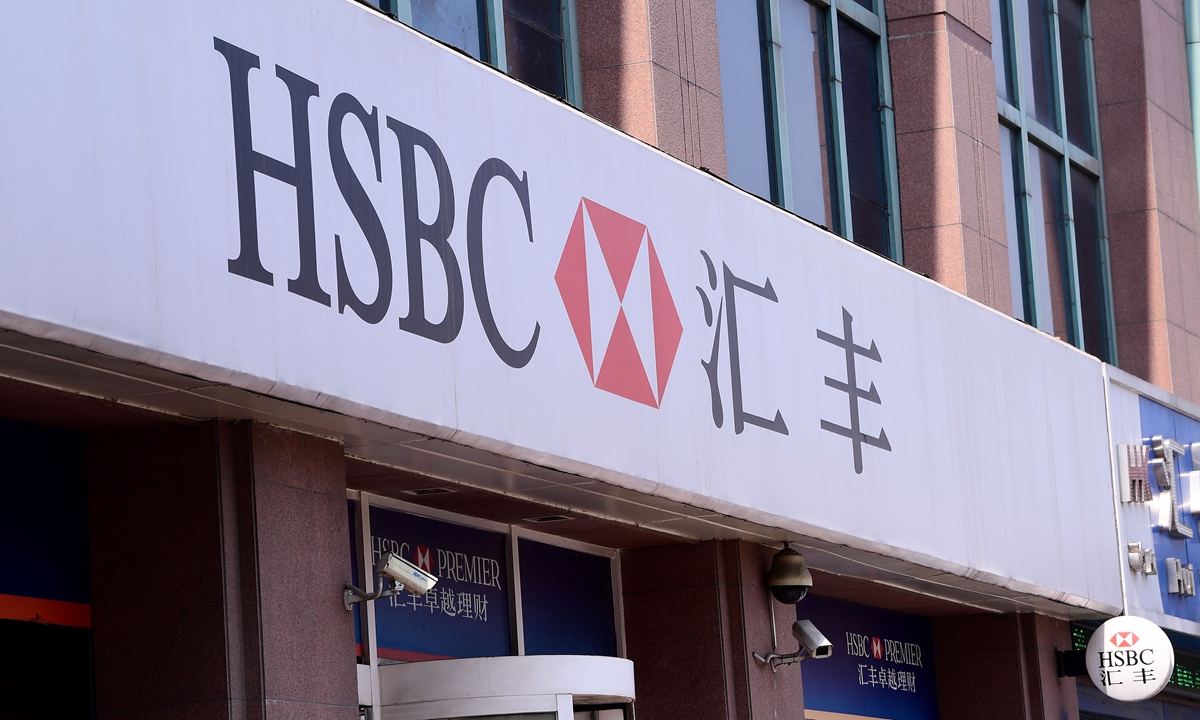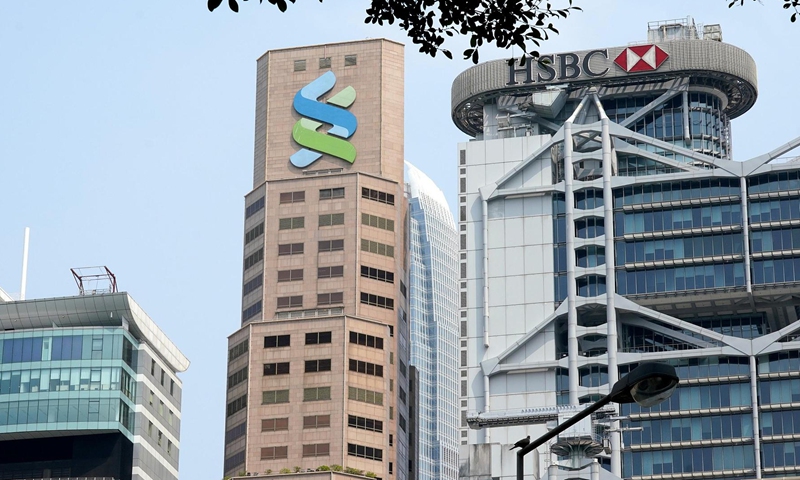HSBC makes 'rational choice' to freeze HK secessionists’ accounts
By Chen Qingqing Source: Global Times Published: 2020/8/27 17:57:25

HSBC Photo: IC
Accusations made by US Secretary of State Mike Pompeo against HSBC over the matter of Hong Kong have been slammed as ridiculous, as the British bank has made the rational choice of following local rules in Hong Kong when doing business in the local market, some experts said on Thursday.
The bank's shift in its stance in the Chinese market also showed its desire to survive, an expert said, particularly considering the controversial role that HSBC has played in the arrest of Huawei's senior executive Meng Wanzhou, which sparked online calls in China to boycott the company.
Pompeo renewed his attacks against the bank by claiming that it had maintained the bank accounts of individuals who had been sanctioned by the US, but cut off access to accounts of executives of Next Digital, the parent company of the Apple Daily, who have been suspected of violating China's national security law for Hong Kong.
The US is dismayed to learn that the Communist Party of China "continues to bully our British friends and their corporate leaders. HSBC maintains accounts for individuals sanctioned for denying Hong Kongers' freedom, while shutting accounts for those seeking freedom," the US politician said in a tweet.
"It's not even worth rebutting this criticism. A British company is doing business in China and following the laws and regulations of the country. What's the problem with that?" Shen Yi, a professor at the School of International Relations and Public Affairs of Fudan University, told the Global Times on Thursday.
The Hong Kong Police Force (HKPF) arrested Jimmy Lai, founder of Apple Daily, and several of the company's senior executives on August 10 for violating the national security law for Hong Kong and collusion with foreign powers.
Along with this arrest, two of Lai's sons and two senior executives from Next Digital - an executive chairman and a chairman in charge of the outlet's operation and finances - were also arrested. One of Lai's aides, Mark Simon, is currently abroad and wanted by police.
When police investigate a case like the one involving Lai, who was also suspected of fraud and money laundering, it's common practice to ask the bank where the suspect holds bank accounts or credit cards to suspend services, a source close to the HKPF told the Global Times.
"Does Pompeo really expect a British bank that has a significant business presence in China to cooperate with the US government in breaking Chinese law? It's just ridiculous," Shen said.
HSBC declined to comment on the matter when it was reached by the Global Times on Thursday.
However, the fact that the bank is cooperating with law enforcement authorities in Hong Kong despite growing pressure from the US side is now in stark contrast with its questionable role in Huawei's case, especially when its American peers such as Citigroup and Standard Chartered Plc are stepping up scrutiny of banking clients in Hong Kong to avoid violating US sanctions.

File photo
"HSBC made a rational and correct choice," Mei Xinyu, a research fellow at the Ministry of Commerce's Chinese Academy of International Trade and Economic Cooperation, told the Global Times on Thursday.
If it follows the lead of US hawks like Pompeo while turning a blind eye to local laws where it operates, how could it be a trustworthy business when it damages the interests of others in order to cater to US needs, Mei asked.
HSBC has been facing growing criticism in the Chinese market after evidence provided to a Canadian court showed how HSBC conspired with the US Department of Justice to set a "political trap" for Huawei and gave false testimony to the court.
This evidence could drag the British bank - which is already facing growing controversy due to a series of misdeeds and its swaying stance over key issues in China - into a more dangerous situation, according to some observers.
"The way the bank deals with Next Digital executives is a turning point, which shows its full-fledged desire to survive in China," Mei said.
RELATED ARTICLES:
Posted in: HK/MACAO/TAIWAN